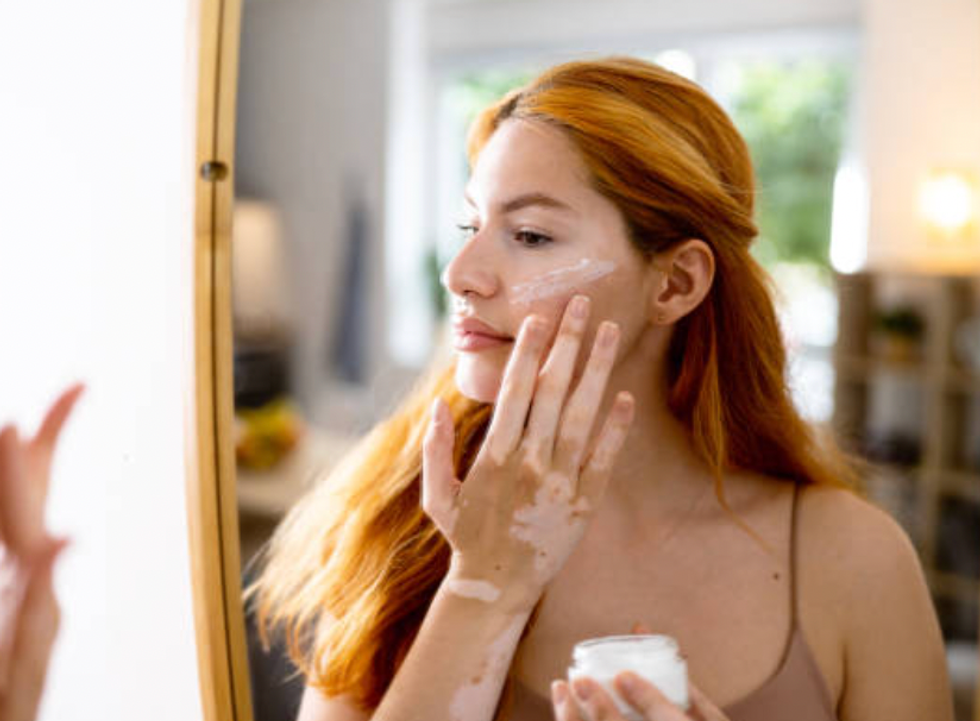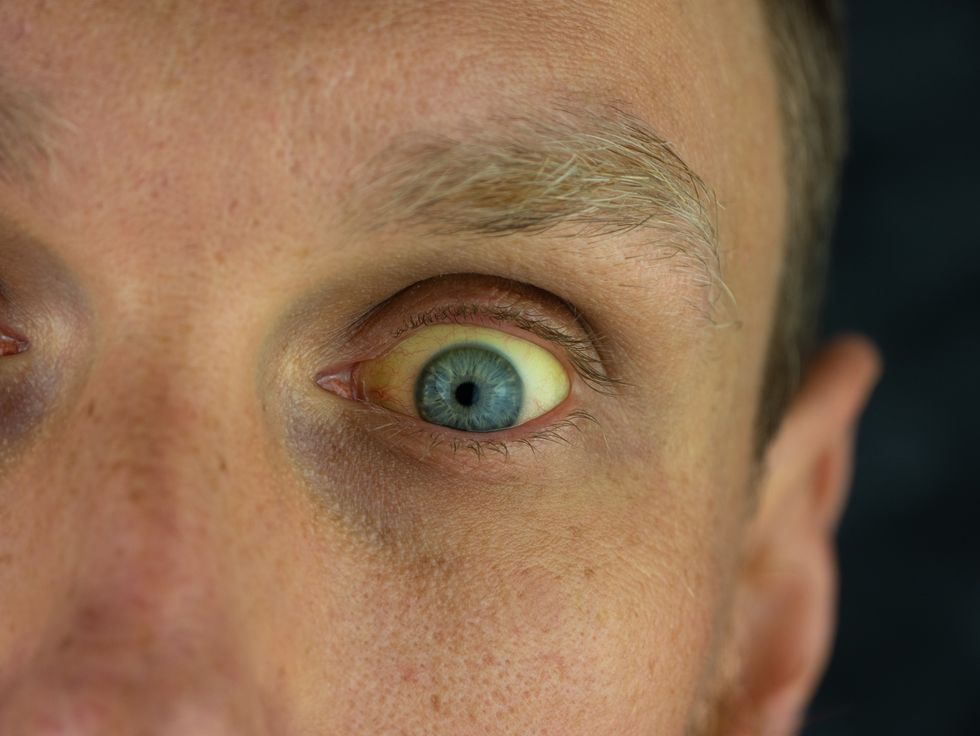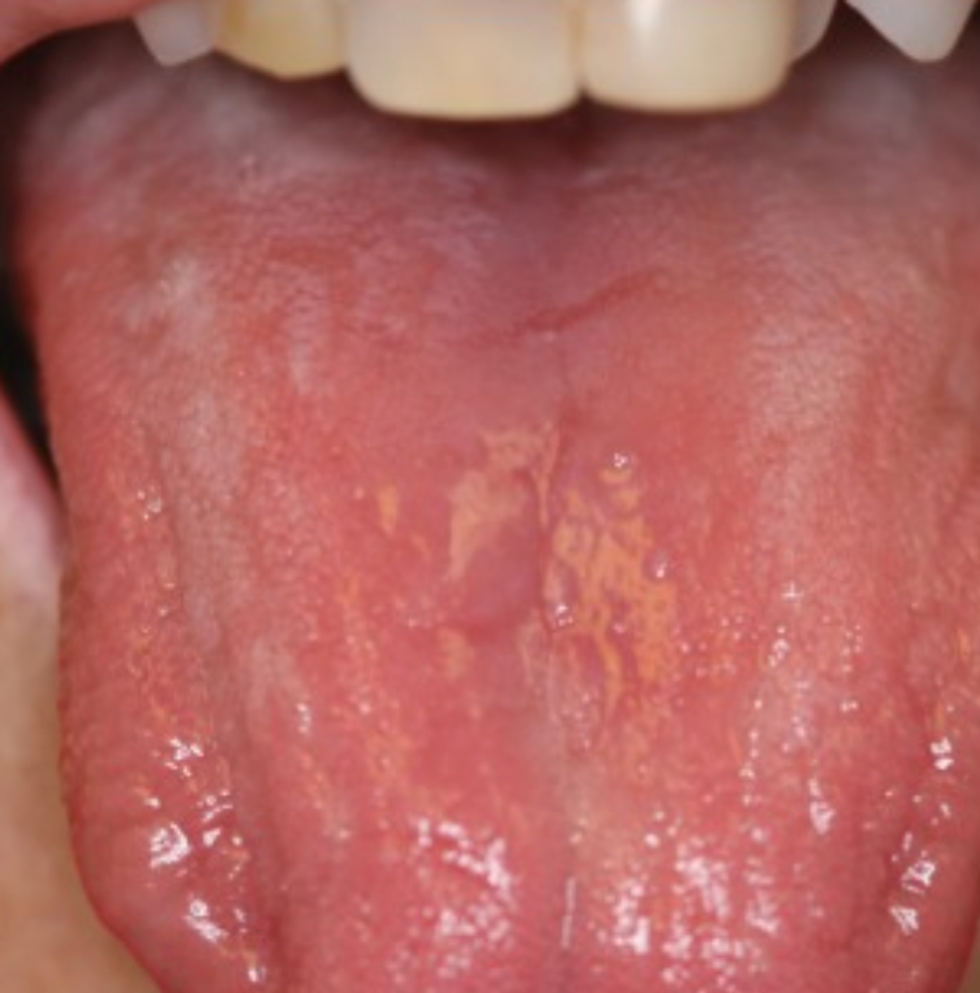How to tell you have B12 deficiency simply by looking in the mirror...Spotting the signs could STOP damage

B12 deficiency can show up on the surface of the skin in peculiar ways
Don't Miss
Most Read
Latest
Vitamin B12 underpins many important processes in the body, such as blood cell production and nerve health.
Falling short of this vitamin can therefore have debilitating effects, some of which can be permanent.
Spotting the symptoms early can minimise the risk of damage. An easy way of doing is looking in the mirror. Here are the telltale signs:
Hyperpigmentation
Hyperpigmentation is a common condition that makes some areas of the skin darker than others. It can appear as brown, black, grey, red or pink spots or patches.
There have been many reported cases of hyperpigmentation in people with B12 deficiency.
One case study documented a 58-year-old woman who developed hyperpigmentation on her hands and feet. She was diagnosed with vitamin B12 deficiency. Her symptoms and hyperpigmentation resolved after vitamin repletion.
A separate study found that patients with hyperpigmentation have significantly lower vitamin B12 levels than those without hyperpigmentation.
Early treatment of vitamin B12 deficiency can prevent permanent disability in patients with hyperpigmentation.

There have been many reported cases of hyperpigmentation in people with B12 deficiency
|International Journal of Women's Dermatology
Vitiligo
Vitamin B12 deficiency can cause vitiligo, a skin condition that can cause white spots.
Multiple studies have found that vitamin B12 deficiency is more prevalent in people with vitiligo than in the general population.
One study found that people with vitiligo were eight times more likely to have a vitamin B12 deficiency than people without vitiligo.
The risk appears to increase with age, with one study finding that 30 per cent of people with vitiligo over the age of 30 had a vitamin B12 deficiency.
While there is no definitive cure for vitiligo, Ultraviolet B (UVB) phototherapy is an effective treatment. Some alternative treatments, such as herbal products and vitamin supplements, have also shown benefits, but more research is needed to establish their place in treatment.

Multiple studies have found that vitamin B12 deficiency is more prevalent in people with vitiligo
|Getty Images
Jaundice
B12 deficiency can cause jaundice - a condition that causes the skin and whites of the eyes to appear yellow due to high levels of bilirubin.
One study found that vitamin B12 deficiency may be related to prolonged jaundice in newborns.
Another study found that vitamin B12 levels were significantly lower in a study group compared to a control group, and that vitamin B12 deficiency may be an important cause of prolonged jaundice, a waste material created when the body breaks down red blood cells.
What causes this?
When the body doesn't have enough vitamin B12, it can't produce enough red blood cells, which can lead to pale skin and jaundice.
It's usually treated with high doses of vitamin B12, typically orally.

When the body doesn't have enough vitamin B12, it can't produce enough red blood cells, which can lead to pale skin and jaundice.
|Getty Images
LATEST HEALTH DEVELOPMENTS
Red tongue
B12 deficiency can cause glossitis - a condition whereby the tongue appears swollen, sore, and beefy red in colour.
Research shows glossitis is present in up to 25 per cent of cases of vitamin B12 deficiency.
Other symptoms of vitamin B12 deficiency include mouth sores, a burning sensation in the mouth, and a bad taste in the mouth.
Treatment typically involves intramuscular injections or tablets.

Research shows glossitis is present in up to 25 per cent of cases of vitamin B12 deficiency
|Getty Images










